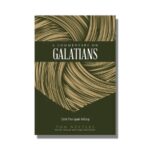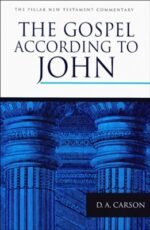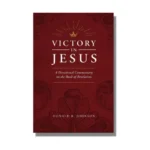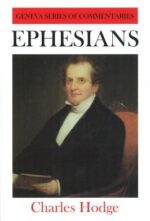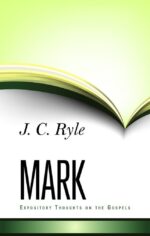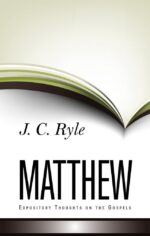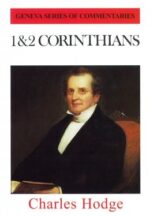-
A Commentary on Galatians (Tom Nettles and Sylvia Nettles Dickson)
$12.50The driving theme of the book of Galatians is the glory of Christ—the glory of his perfect obedience to all the requirements of God’s law. Driven by unbreakable certainty in his calling as a herald of divine truth to the churches in Galatia, the apostle Paul fearlessly declares that Jesus Christ alone saves. The joyous life that might be found through obedience to the law has been taken away by human sinfulness—only Jesus has kept every positive requirement of the law and has even suffered its curse. The result is that union with Christ by faith is the triune God’s provision for sinners to be declared right by him—the Father calls; the Son saves; the Spirit draws.
$15.95 -
Parallel Commentary on the New Testament
$27.99This parallel New Testament commentary includes the text of the King James Version and applicable portions from the sermons from Charles Spurgeon on each left-hand page, and excerpts from the writings of John Wesley and Matthew Henry on each right-hand page. Read the biblical text and glance across the page to get the interpretations and meditations of these giants of the faith!
$34.99 -
The Gospel According to John (D. A. Carson)
$45.95In this solid evangelical commentary on John’s Gospel, a respected Scripture expositor makes clear the flow of the text, engages a small but representative part of the massive secondary literature on John, shows how the Fourth Gospel contributes to biblical and systematic theology, and offers a consistent exposition of John as an evangelistic Gospel. The comprehensive introduction treats such matters as the authenticity, authorship, purpose, and structure of the Gospel.
$52.99 -
Victory in Jesus: A Devotional Commentary on the Book of Revelation (Donald R. Johnson)
$19.95The book of Revelation is one of the most encouraging and devotional books in the Bible, but sadly, it is one of the most neglected and misunderstood as well. Though there are many good commentaries that help us to understand its message, there are few that capture the devotional nature of the book. And this is unfortunate, as the book of Revelation is not properly understood or appreciated without the engagement of our minds and hearts. One of the central objectives of John is to lead us to admiration and awe. Above all else, it is meant to show us to Christ. With this in mind, Victory in Jesus not only brings light to many of the mysterious symbols of the cosmic drama depicted within the book, it captures its devotional nature by lifting our hearts to worship its leading character— the Lamb who was slain but now risen, who is worthy of all our praise.
$28.00 -
Expository Thoughts on Matthew (J. C. Ryle) – paperback edition
$13.00Many commentaries have been written on the gospels, but none make more compelling reading for family worship than Ryle’s. This is his single volume on the Gospel of Matthew. Ryle is without peer when it comes to readability and practical insights into the text. For more than a century, Ryle’s expository thoughts on all four gospels have been useful around the world with an undiminished popularity and usefulness. His plain and pointed words are a huge stimulus to reading the Bible itself. Any reader can learn how to better glean from his own Bible reading, by merely learning to imitate Ryle’s observant eye to pick up clues in the text.
-
The Message of James (Alec Motyer)
$14.95As a good communicator, The Apostle James addressed his readers directly and pointedly with vivid images from ordinary life and attention-gripping statements. Alec Motyer’s rich exposition brings James’s letter to life for today’s reader. Motyer is himself gripped by James’s energy and concern for practical Christianity.
The letter shows how a genuine faith is a tested faith, how encounter with difficulties is an essential part of the growth to Christian maturity this book powerfully brings out James’s memorable themes–the link between enduring trials and maturity; the question of perfection; the good gifts of God; faith, works and Christian concern in a world of human need; the implications of careless and evil words; the meaning of war; the church and healing; confession of sin; and the need for active purity in life.
$18.00
FREE DELIVERY
When ordering from $500.

